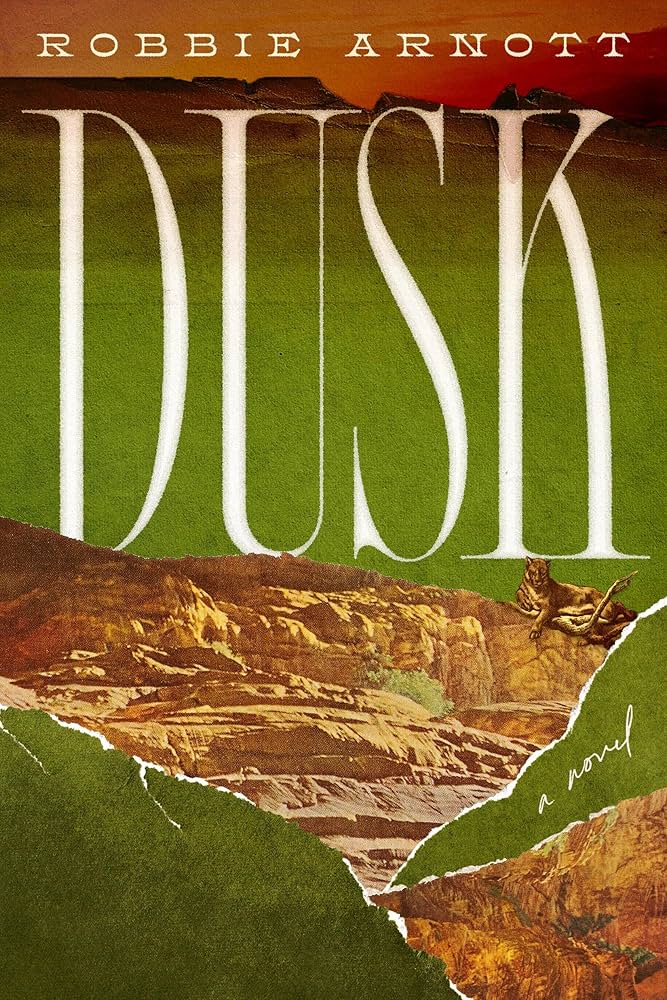I’m not one to camp, which made Robbie Arnott’s Dusk — in which two twins fight to capture a wild puma of the same name faster than the other big game hunters in exchange for a huge bounty — eerie on two levels; that of the hunt, and of the incessant, pounding environment threatening to devour them alike.
The Tasmanian writer’s fourth novel is a four-character affair — the twins, Iris and Lloyd, Dusk, the puma, and nature, or in his words, “all of these places that frothed with the pace of the world, where life shook and strained, where one’s blood ran fast.” Arnott’s wide-eyed earthy fascination is present in every sentence, and even though the heavy, mouthy prose takes a while to get used to, eventually some stronger developments emerge. But this is nature writing at its finest as he describes the Australian highlands: “The small islands off the coast, where the trees were beaten flat by the screaming winds they’d rowed through to join the muttonbird season, thrusting their hands down sandy burros as likely to hold coiled snakes as thin-necked chicks. The sandstone quarries, full of miner’s lung. The vast estuaries to the east, where they had thrown weighted nets into ink-dark currents, dragging out schools of flapping bream. The lagoons and wetlands, where they’d hunted black swans with barbed spears.”
The twins are disadvantaged from the start, outmanned by six other stronger hunters who may have already captured Dusk, but they’re crafty. (And they really need the money). Cursed from birth, they’re weighed down by the genes of their parents, two criminals who schemed, plotted, killed, and sometimes even involved the twins. They “stole with stealth, deception, distraction, intimidation, violence — whatever worked,” Arnott writes. “Whatever fed and clothed and warmed them.” Before their parents passed, the kids learned how to be scrappy — and to stick together.
Deeper into the hunt, they meet others — a man whose son was chomped by Dusk, a handsome fellow that Iris uses for directions and companionship, and a kind woman who gives Iris shelter and money for cutting peat. But the twins know their own rhythms the best, and their kindness and understanding — her help with his back injury, and his keen knowledge of her personality — means they’re all they can rely on. Iris “wondered if a bit of mystery between them might have made life more surprising.”
Lack of surprise informs the novel too; this is a hero’s journey, and some riskier decisions could have made it more layered and interesting. Despite some squirmy moments, it won’t shock anyone to say that the twins survive. What they do with Dusk, though, is thrilling, once they’ve understood profit vs. nature rammed up against each other in such a tangible way. And it’s in a particularly deadly form.
Dusk is enamored with nature, deeply interested in the dynamics between siblings, and keenly aware of karmic destiny. Arnott has a talent of making stories out of a few simple sentences, whether it’s for a human or for a puma. Looking into the eyes of both, they don’t seem too different.
Dusk is out now.

